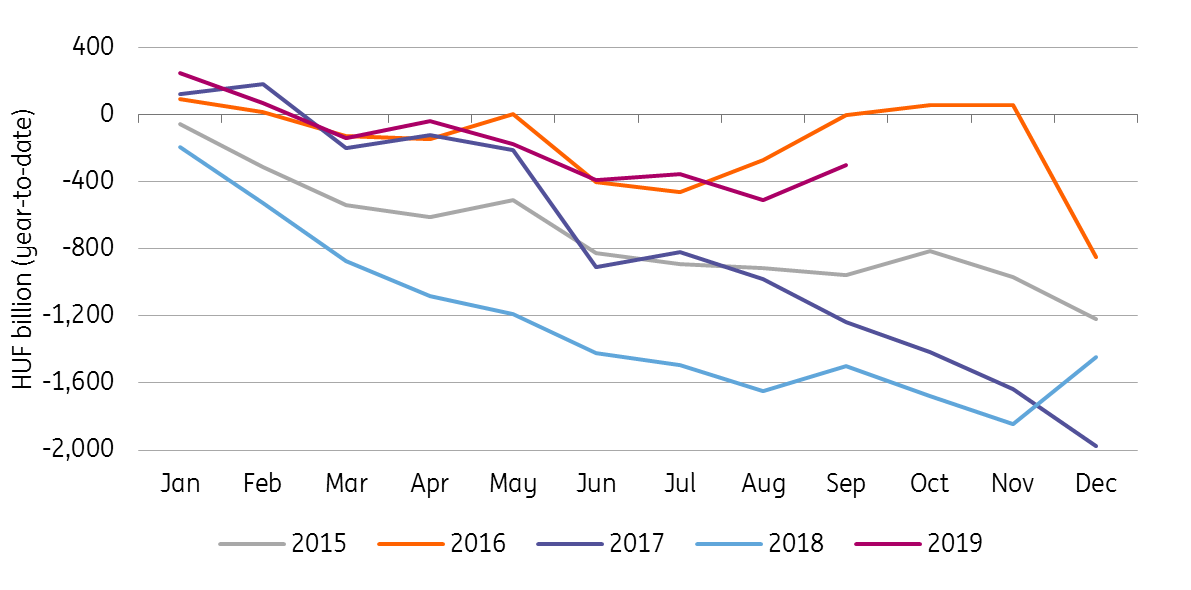Hungarian government on course to achieve deficit target
The year-to-date government deficit came in at 30% of the year-end target in September. The monthly surplus was mainly the result of a huge EU fund inflow
The September year-to-date balance of the cash-flow based government budget showed a deficit of HUF 303.6 billion, only 30% of the full-year target. However, expenditures and revenues were not proportionate during the year. This, after all, counts as an exceptionally strong budget measure, providing the government some room to spend more as debt reduction goes better than planned.
Cash flow based year-to-date central budget balance

Previously, the majority of the deficit came from pre-financed EU projects, but now the deficit from other sectors is starting to dominate. This year, the government has spent HUF 1077.4bn on EU projects, while HUF 931.7bn has come in from Brussels. This means a huge amount of EU money (HUF 464.4bn) came in last month, while year-to-date expenditures hardly increased. Thus the monthly budget balance was positive in September thanks to the incoming EU funds.
As a result, the negative gap between EU funds inflows and pre-finances fell sharply. Looking at the yearly targets, the government still expects a further HUF 400bn incoming EU transfers in the last quarter of 2019. Also, there is HUF 900bn to spend on pre-financed EU projects, half of the annual plan based on the related expenditure pencilled in the budget.
The revenues are still driven by the tight labour market and therefore the direct tax collection. According to the Ministry of finance, the collection of most taxes until September was around 75% of the government plan, which is much higher than the average of 66% of the last four years.
As revenues usually increase at the end of the year, this means, revenues are likely to overachieve the goal. The relatively good budget implies that the government can easily reach its deficit target of 1.8% of GDP for 2019.
This publication has been prepared by ING solely for information purposes irrespective of a particular user's means, financial situation or investment objectives. The information does not constitute investment recommendation, and nor is it investment, legal or tax advice or an offer or solicitation to purchase or sell any financial instrument. Read more
Download
Download snap